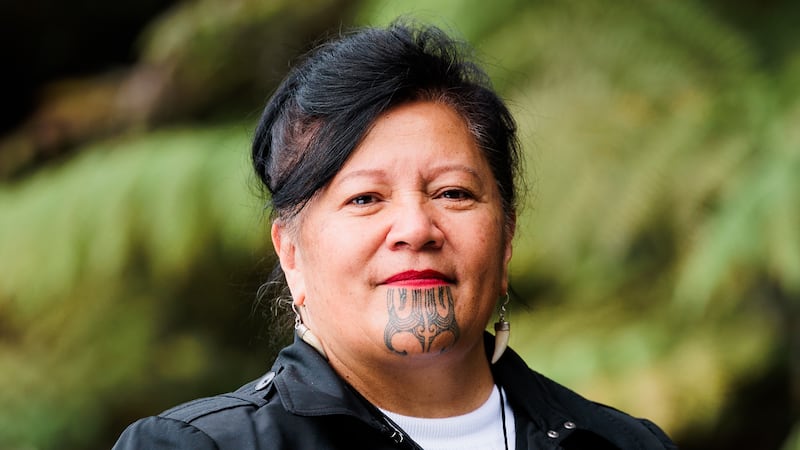Te Pāti Māori children’s spokesperson Mariameno Kapa-Kingi ((Te Aupōuri, Ngāti Kahu ki Whangaroa) has called for Children’s minister Karen Chhour’s resignation over what she termed “atrocious handling and agenda to repeal section 7AA”.
Te Ao Māori News wanted to know what the other parties in Parliament thought about Karen Chhour (Ngāpuhi) and the recent controversy around the repeal of section 7AA of the Oranga Tamariki Act.
Labour

Labour spokesperson for children Willow-Jean Prime (Te Kapotai, Ngāti Hine, Ngāpuhi) said all her party wanted was for “Chhour to do her job.
“She has a duty to serve our tamariki – if she fails in this, it’ll be our children who pay the price.”
Yesterday, Prime appeared on Te Ao Mārama discussing several political issues, including the current Waitangi Tribunal urgent hearing.
“E tautoko ana ahau i ngā kōrero a te taraipiunara ki te pirimia, ki ōnā minita kia maka tērā ki te taha, tērā pea he huarahi anō kia titiro ki tērā wāhanga toru tau.”
“I support the tribunal’s recommendation that the prime minister and the minister need to stop the repeal and another solution can be found in the three-year review.”
“Ko taku āwangawanga kahore te kāwanatanga e whakautu ana i ngā pātai i tēnei rā e pā ana ki tērā. Kāhore te pirimia e hiahia ana ki te whakautu i ngā pātai, he karo. Kāhore te minita e hiahia ana ki te whakautu i ngā pātai, ka aha koutou i te putanga mai.”
“My issue is that the government isn’t answering any questions about these issues. The prime minister doesn’t want to answer questions, he’s dodging, the minister also doesn’t want to answer questions about what they’re going to do with the recommendations (of the interim report),” she said.
Greens

Green Party spokesperson for children Kahurangi Carter (Ngāti Maniapoto, Tainui), called for the government to “come to its senses”.
“Scrapping section 7AA will see disparities across state care proliferate and the hope for our tamariki deteriorate.
“The reality is that a ministerial resignation is not going to bring an end to the disregard and disrespect this government is showing to Te Tiriti.
“It is for this reason the Green Party will continue to put its energy into challenging the government on its largely anti-Māori and Te Tiriti trashing legislative programme,” Carter said.
National and New Zealand First
Both of Act’s coalition partners didn’t want to talk about Chhour.
“As Karen Chhour is the coalition government’s Minister for Children, we will not be offering any comment from anyone else on this,” National said.
And New Zealand First just said: “No comment on this from us.”
ACT
Karen Chhour is an Act MP and she declined to comment on Te Pāti Māori’s suggestion she resign.
“The minister is not going to comment on anything related to the Appeal Court legal proceedings.
“She won’t be able to comment until after the Appeal Court decision is released,” her spokesperson said.
Te Pāti Māori

Te Pāti Māori has been the most vocal on this issue.
On Monday its children’s spokesperson told Waatea News Chhour’s point of view was “such an arrogant, ignorant, conceited way of acting as a minister”.
Kapa-Kingi sent a press release to all media the next day, again calling for the Children’s Minister’s resignation.
“Our mokopuna demand nothing but the resignation of the Children’s Minister. Her atrocious handling and agenda to repeal section 7AA, coupled with her failure to provide evidence, demands nothing less.
“Karen’s own personal reflections aren’t evidence and do not justify the repeal of something so vital for tamariki, mokopuna,” she said.
What is Section 7AA in the Oranga Tamariki Act?
Many people are confused about what section 7AA in the Oranga Tamariki Act 1989 really is.
This particular section of the act was inserted on July 1, 2019.
This is what the section says:
7AA Duties of chief executive in relation to Treaty of Waitangi (Tiriti o Waitangi)
(1) The duties of the chief executive set out in subsection (2) are imposed in order to recognise and provide a practical commitment to the principles of the Treaty of Waitangi (te Tiriti o Waitangi).
(2) The chief executive must ensure that—
(a) the policies and practices of the department that impact on the well-being of children and young persons have the objective of reducing disparities by setting measurable outcomes for Māori children and young persons who come to the attention of the department:
(b) the policies, practices, and services of the department have regard to mana tamaiti (tamariki) and the whakapapa of Māori children and young persons and the whanaungatanga responsibilities of their whānau, hapū, and iwi:
(c) the department seeks to develop strategic partnerships with iwi and Māori organisations, including iwi authorities, in order to—
(I) provide opportunities to, and invite innovative proposals from, those organisations to improve outcomes for Māori children, young persons, and their whānau who come to the attention of the department:
(ii) set expectations and targets to improve outcomes for Māori children and young persons who come to the attention of the department:
(iii) enable the robust, regular, and genuine exchange of information between the department and those organisations:
(iv) provide opportunities for the chief executive to delegate functions under this Act or regulations made under this Act to appropriately qualified people within those organisations:
(v) provide, and regularly review, guidance to persons discharging functions under this Act to support cultural competency as a best-practice feature of the department’s workforce:
(vi) agree on any action both or all parties consider is appropriate.
(3) One or more iwi or Māori organisations may invite the chief executive to enter into a strategic partnership.
(4) The chief executive must consider and respond to any invitation.
(5) The chief executive must report to the public at least once a year on the measures taken by the chief executive to carry out the duties in subsections (2) and (4), including the impact of those measures in improving outcomes for Māori children and young persons who come to the attention of the department under this Act and the steps to be taken in the immediate future.
(6) A copy of each report under subsection (5) must be published on an Internet site maintained by the department.



